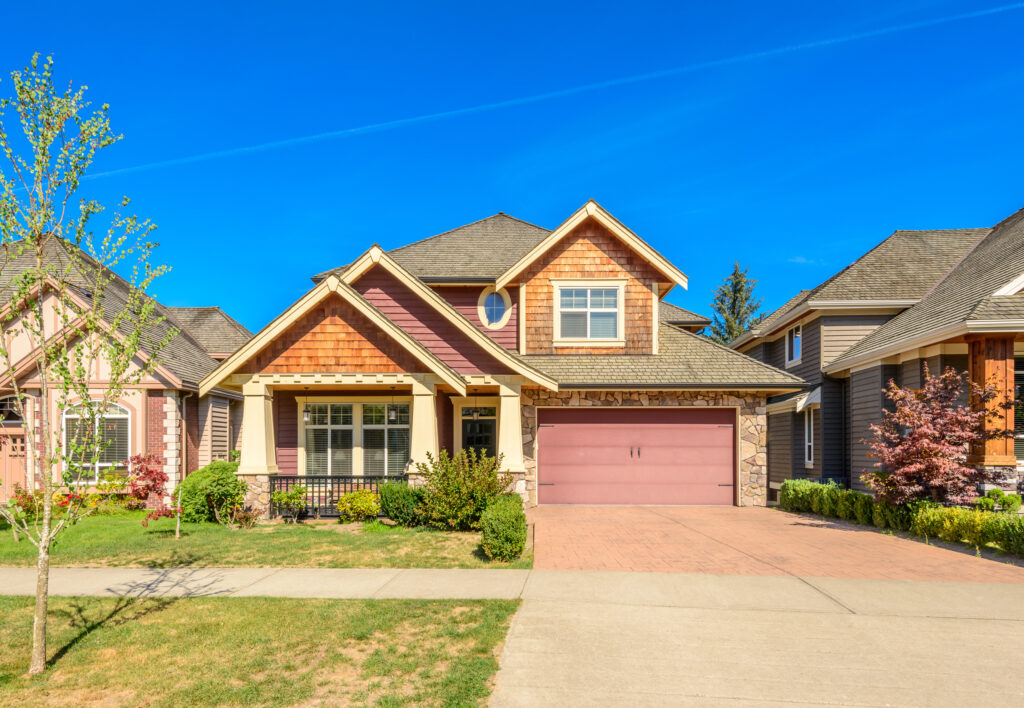Adult Care Homes in Arizona: How to pay for, Laws and Regulations and Questions to ask…
Arizona is an ideal place for seniors to enjoy their time in retirement, offering some of the most picturesque landscapes in all of the country. The reasonable cost of living makes it an ideal place for retirees and all seniors alike. The state has 300 days of beautiful sunshine a year and a growing economy. As our senior population ages, some may require care at some point. Adult care homes may be ideal for a senior who can no longer manage their health and safety in their own home, and may need care.
Some people refer to all senior care under the umbrella of retirement home or nursing home, but adult care homes are a specific category because they offer private residencies in a home-like environment.

- Adult Care Homes in Arizona: How to pay for, Laws and Regulations and Questions to ask…
- More About Adult Care Homes
- What care and support do Adult Care Homes provide?
- Caregivers in Arizona adult care homes may assist with activities of daily living
- Laws and Regulations in Adult Care Homes
- What are the costs of an Adult Care Home?
- How to pay for adult care homes
- Resources and links related to Senior Living and Care
- Questions to Ask
- Search other states for Adult Care Homes
Added Benefits for Seniors in Arizona
- Seniors pay no taxes on social security
- Beautiful weather and scenery
- Arizona is a great state to be allergy-free
- Peoria and Glendale are both ranked high on the best places for seniors to live
More About Adult Care Homes
Arizona adult care homes are often referred to as Assisted Living facilities in Arizona. Laws and Regulations in the state operate the same for each.
Typically, adult care homes are private residences that provides a home-like setting for 5-10 residents, depending on the licensing requirements in that county. The Adult Care Home provider generally provides meals, housekeeping, and some limited activities. Residents may require very light assistance or may be more dependent with several care needs; it is best to ask individual locations for their specific policies and services they are licensed to perform.

Adult care homes are found in normal residential neighborhoods. You may drive past an adult foster home each day on your commute. As you look for adult care homes in your community, it is good to know the other terms/names you may hear:
- Care Home
- Adult family home
- Board and care home
- Adult foster home
- Nursing Home (although this is an outdated and not an accurate term for this level of care)
What care and support do Adult Care Homes provide?
Similar to a nursing home, residents receive 24-hour care all in a single-family environment. Each home has an operator who may employ additional caregivers to support with the care of residents. Residences are licensed to house a smaller number of adults as opposed to larger assisted living communities. So they make ideal homes for loved ones who require individualized care while allowing residents the preferences and choices to honor their independence. For safety, operators must be licensed in their state and participate in on-going training. Staff must have hands-on experience providing care for the population they intend to serve, as well as on-going training.

Caregivers in Arizona adult care homes may assist with activities of daily living
- Personal care
- Activities
- Mobility
- Behavior management
- Eating
- Dressing
- Toileting
- Personal hygiene
- Cognitive support and redirection
Laws and Regulations in Adult Care Homes
In Arizona, licensing is regulated and monitored by the Arizona Department of Health Services. The regulations are same as AFLs, assisted living facilities.
Services in adult care homes
Caregivers in adult care homes are responsible for supervising residents; providing care services, personal care, behavioral health services.
All services must be documented in a written plan, outlining all services.
Medication
Adult care homes monitor medication intake, restricting access to medications. They may assist in administering medications or monitoring self-administration.
Food/Meals
Federal dietary guidelines are in place to establish how and when meals and snacks are prepared. each resident will receive meals and snacks according to their dietary needs.
Staffing
Staff incudes managers, caregivers and assistant caregivers. All staff must be trained and capable of performing all care and services. There is no required staff to resident ratios in place in Arizona. Sufficient staff must be on hand to perform all necessary care services. At least one caregiver must be on premises and awake at all times a resident is in the home.
Licensing of adult care homes
All adult care homes must be licensed through the Department of Health and Human Services.
What are the costs of an Adult Care Home?
It becomes common knowledge as you search through care options for your aging loved one, the large discrepancies in costs. Adult care homes are no exception. The good news is adult care homes are generally half the cost of a nursing home and adult care homes can be less expensive than assisted living. But they will not have the same amenities and variety of activities.
- Costs fluctuate depending on your geographical location.
- Each state has varying costs for adult care homes.
- Expect to pay between $1,700 per month to $4,000 per month, on average.
- Costs are affected by the care requirements of your loved one.
How to pay for adult care homes

You want to consider your payment options for assisted living, memory care, and care homes. For these services, Medicare is NOT an option for payment.
The most common payment for these services would be out of pocket Private Pay and assessing a combination of retirement funds, personal savings, and pension payments.
Medicaid can also be an option, be sure to see if you or a loved one qualifies.
Long-Term Care insurance is also a possible option in cases of chronic conditions, be sure to see if you or a loved one qualifies.
For our Veterans and spouses of veterans, be sure to assess Veteran Aid and your eligibility for these benefits.
Medicare – NO:
- Medicare does NOT pay for Assisted Living.
- People 65 years and older and individuals with end stage renal disease are eligible for Medicare benefits, no matter their income.
- Coverage is meant for people in need of short-term care.
Private pay – YES:
- Many families pay for assisted living with private funds.
- Private pay can be a combination of retirement funds, personal savings, and pension payments.
- Family members may contribute funds to pay for assisted living or other senior housing and care.
Medicaid – MAYBE:
- Medicaid provides health coverage to millions of Americans. Eligible participants include: low-income adults, elderly adults and people with disabilities.
- Medicaid is administered by state, according to federal requirements. The program is funded jointly by each state and the federal government.
- Every state has their own individual Medicaid assistance program.
- National guidelines are in place do decipher how states must spend Medicaid money, but with allowances toward the guidelines.
- The state determines what levels of care will be covered by Medicaid, who is eligible, and how much the state will reimburse the care community.
- If you are unsure whether you qualify for Medicaid, you should apply. You may be eligible depending on your household income, family size, age, disability and other factors.
Long-term Care Insurance – MAYBE:
Long term care insurance is a great way to pay for assisted living, and planning ahead is important when considering how to pay for senior housing and care. Nearly 75% of people over the age of 65 will require long-term care and services at some point. Buying into long-term care insurance when a person is in their 50s and 60s is the most common time to do so.
- Long-term care insurance helps cover the costs of chronic medical conditions.
- Individuals and couples with the ability to pay into long-term care insurance have the advantage of a head start in allocating funds for senior care.
Veteran Aid and Assistance – MAYBE:
This benefit is available to some military veterans and surviving spouses who live in an assisted living community and those who have in-home care.
- There are specific guidelines, but a veteran may qualify for as much as $2,050 each month.
- A veteran with a sick spouse may be eligible for $1,600 per month.
- If a veteran has passed, their surviving spouse can qualify for $1,300 per month.

Questions to Ask
Finding a senior living community can be overwhelming. Here are some tips on things to be observant of:
- Make sure the facility is clean and well maintained. You can tell a lot about the operation by noting what is clean and maintained. Are doorknobs loose or damaged? Do you see any frayed carpet or trip hazards?
- Visit during lunch hour to observe what the residents are eating. Ask questions about the nutrition program. Is there diversity in meals, healthy fruits and vegetables served at all meals, drink options?
- Speak to residents and/or family members to learn their perspective.
- Ask about staff and resident engagement. Get a feel for how staff interact with residents.
- Ask about the life enrichment programs. Activities are crucial when it comes to quality of life and play a key role in care for older adults.
- And finally (along with a plethora of more things to consider), get to know the leadership in the building. If you feel good around the Executive Director, Head Nurse, Lead Activities Director and even the Chef or Janitor, it is a good sign you can trust them with the care of your loved one.
Definitions and rules for assisted living homes/adult care homes in Arizona ca be found here
Resources and links related to Senior Living and Care
Eldercare Locator This is a great resource to search for specific care in specific counties and cities. This database is a nationwide resource that connects older Americans and their caregivers with trustworthy local support resources. Connect with services such as meals, home care or transportation, or a caregiver education or respite from caregiving responsibilities. The Eldercare Locator is a public service of the Administration on Aging (AoA), an agency of the U.S. Administration for Community Living.
Medicare provides a search feature to find & compare providers near you, most senior housing and care providers are included on CareAvailability.com. Find & compare plans in your area. Determine if you qualify for premium savings
Medicaid offers information on how to apply for Medicaid, eligibility criteria, links to local state offices, and additional resources
The Alzheimer’s Association is the leading voluntary health organization in Alzheimer’s care, support, and research. Whether you are living with Alzheimer’s or caring for someone with the disease, information and resources are available.
Search other states for Adult Care Homes
Not finding what you’re looking for? Take a look below.
